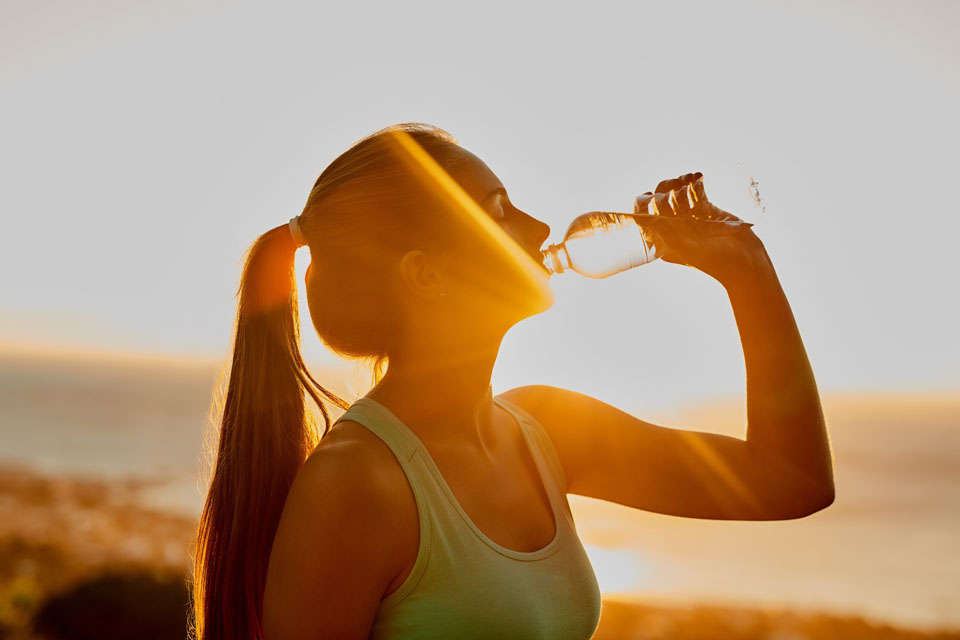„Drink up, don’t get dehydrated” – we often hear this warning, especially on hot, scorching days. But what does dehydration really mean, what are the symptoms and how can we prevent it? What should we do if the problem does occur and we notice more serious signs of dehydration, either in ourselves or in older or very young family members?
Most of our body weight is water (more than 60% for men, more than 50% for women and more than 70% for babies), which contains minerals in dissolved form that are essential for the body, and essential electrolytes such as sodium, potassium, calcium and magnesium. Both our metabolism and our other bodily and nervous system functions work well if we have appropriate water balance, otherwise dehydration can occur.
From thirst to kidney problems
Depending on how much water is missing, you may have mild, moderate or severe dehydration. The first symptoms are a feeling of thirst and darker colored urine, which may be a sign of dehydration. There’s a reason why experts say it’s worth hydrating before your brain alerts you. Later, thirst may increase and you may also experience low blood pressure, a faster heartbeat and rapid breathing. Chronic dehydration can lead to kidney problems; kidney stones; liver, joint and muscle damage; constipation and even some cholesterol problems caused by persistent dehydration. In fatal cases, dehydration can even lead to death.
Testing for sodium and potassium deficiency
Mild dehydration can be treated most quickly by replenishing fluids. If symptoms do not improve despite drinking water, seek medical advice, especially for babies and young children, who can lose large amounts of fluid in a short time, for example in the case of vomiting or diarrhea. They may have dry mouth and tongue, crying without tears, lethargy and dry skin. The suspicion of dehydration can be confirmed by a blood or urine test, which shows the levels of sodium and potassium in the body.
Drink up!
A healthy lifestyle and adequate fluid intake – 2-2.5 liters of water per day for adults – are essential to prevent dehydration, especially in the summer heat, when increased sweating leads to greater fluid loss. Removing excess clothing and staying in shade or cooler rooms during the hottest days of summer can help reduce sweating.
Pay more attention to water consumption.



